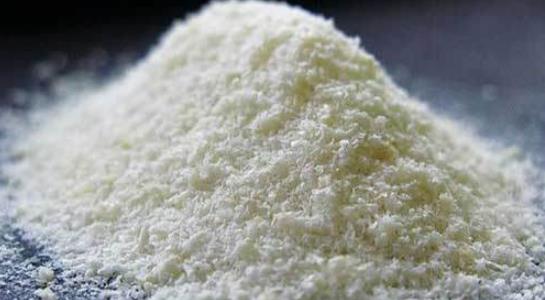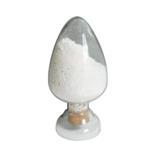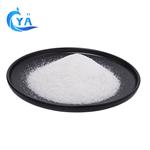Efficacy of Chitosan
Mar 9,2022
Chitin ( N-acetyl-d-glucosamine) is a structural component of crustacean, fungi, insect, annelid, mollusk, and coelenterata exoskeletons. When deacetylated with a strong alkaline solution, chitin produces chitosan. Chitosan is typically insoluble in water, sucrose or NaCl solutions, ethanol, vegetable oils or propylene glycol, although the absence of acetyl groups allows solubility in aqueous solutions of organic acid.

Efficacy
To date, a specific mode of antimicrobial action remains unclear, although in an anionic state, chitosan interacts with cell membranes and degree of deacetylation and depolymerization appear to influence level of activity. Gram-positive bacteria also appear to be less sensitive to chitosan than gram-negative types. A synergistic inhibition of yeast was also observed when chitosan was used in combination with benzoate. NaCl (2%) and proteins appear to antagonize activity; thus, the incorporation of chitosan in meat products is not appropriate. However, pure chitosan films reduced L. monocytogenes counts (2 log cycles) on inoculated bologna (10°C, 5 days).
Why do people take chitosan
Some people take chitosan to try to lose weight. Chitosan is sold over the counter as a "fat blocker" or "fat trapper." The claim is that the supplement might reduce the amount of fat absorbed in your gastrointestinal tract. The FDA has warned about such claims. It says there is no reliable scientific evidence. A review of high-quality studies shows that overweight people who took chitosan did not lose significant amounts of weight.
Early studies in people have hinted that varying forms of chitosan might also help:
Crohn's disease
Dental cavities
Anemia due to dialysis in people with kidney failure
Periodontitis
Those who have plastic surgery using donor tissue
Again, more research is needed to study chitosan for these conditions.
Optimal doses of chitosan have not been set for any condition. Quality and active ingredients in supplements may vary widely. This makes it hard to set a standard dose.
- Related articles
- Related Qustion
- Important applications of chitin and chitosan Oct 11, 2021
Chitin and chitosan has been used in a wide range of applications in different industrial and medicinal fields such as food packaging, antimicrobial wound healing, water treatment, tissue engineering, drug release, and bleeding control.
- preparation of chitosan Oct 8, 2021
Chitosan is the most common chitin derivative. Obtained thought the deacetylation of the chitin macromolecule, by subjecting it to hot alkali (e.g., NaOH concentrated solutions) treatment, chitosan is characterized by a low acetylation degr
- Applications of Chitosan Oct 30, 2019
Chitosan is considered promoters of diverse biological activities, including antioxidant, antihypertensive, antiinflammatory, anticoagulant, antitumoral, antimicrobial, hypocholesterolemic, and antidiabetic effects.
Ritipenem is a synthetic b-lactam antibiotic of the penem class that has a broad antimicrobial spectrum and high resistance to b-lactamases.....
Mar 9,2022APIXylitol is a sugar alcohol which provides 100% of the sugar sweetness of sucrose and has been shown to inhibit growth of some types of oral bacteria (International Food Information Council Foundation. Greiner (2005) investigated the use of....
Mar 9,2022Biochemical EngineeringChitosan
9012-76-4You may like
- The structure and Biological function of Cytochrome C
May 17, 2024
- Is CJC-1295 DAC same as CJC-1295?
May 16, 2024
- Botulinum toxin and Botulinum toxin A
May 16, 2024
- Chitosan
-

- $36.00 / 1kg
- 2024-05-17
- CAS:9012-76-4
- Min. Order: 1kg
- Purity: 99.99%
- Supply Ability: 100Tons
- Chitosan
-

- $0.00 / 25kg
- 2024-05-16
- CAS:9012-76-4
- Min. Order: 1kg
- Purity: 99%
- Supply Ability: 50000KG/month
- Chitosan
-

- $0.00 / 1kg
- 2024-05-15
- CAS:9012-76-4
- Min. Order: 1kg
- Purity: 99%
- Supply Ability: 1 tons




